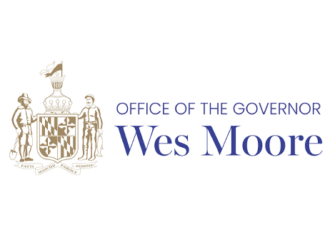
Elizabeth Holmes is a thirty-year-old Stanford dropout. She is also a wildly successful entrepreneur, having founded her now $3.5 billion, 700-employee company just twelve years ago at the age of nineteen. That company, Theranos, is changing the landscape of disease diagnosis by providing test results from a single drop of a patient’s blood. Instead of a needle stick and multiple vial draws, patients can now receive a virtually painless finger prick. Holmes’ innovative idea is not to only improve the blood drawing procedure, but also to accelerate delivery of results; make this new technology universally affordable; and make it universally accessible. In an interview at the Fortune MPW Next Gen convention Holmes stated her goal is not to make money for herself, but to re-invest in her company in order to strengthen and expand her product’s capabilities and reach, “I really believe that building a business is a vehicle for making a change in the world.” Holmes dropped out of Stanford because she could no longer ignore the calling to follow her dream and be the catalyst for change in early disease detection.
Being a business owner is on the rise. Currently about 24 million people in the United States workforce are entrepreneurs. The Great Recession generated a large number of necessity entrepreneurs—individuals who could not find existing jobs and so created jobs for themselves. In these years following the end of the recession, however, there has been a steady climb in opportunity entrepreneurs—those like Elizabeth Holmes—with 79.6 percent of total new business owners having started their company because they saw a need or harbored a personal desire and wanted to fulfill it.
Regardless of the motive for beginning a business, the growth of entrepreneurship is crucial to the economy. There is an “outside the box” and “risk taker” mentality associated with entrepreneurs, and this type of forward thinker notes a gap in existing products or services, or envisions an entirely new concept, and brings it to life. This business creates new jobs, stimulates spending, and brings in revenue—which in turn supports the community and its economy. Research by the U.S. Census Bureau has shown in the past thirty years new businesses (those less than five years old) create around three million jobs annually, whereas existing businesses take credit for just one million.
While the idea of being one’s own boss, making a fortune, or changing the world is appealing to many, Entrepreneur.com author Steve Tobak notes many Millennials are struggling with the desire to be entrepreneurs but are not succeeding at building their business. “If there’s no real expertise, no real product, no real business, no real risk, and no real prospect for return on investment, you’re not working. And you’re not an entrepreneur, either.” This disparity between the notion of being one’s own boss and actually forming a new business, however, is largely a matter of education. Universities are taking strides to accommodate the demand for startup education on campus, and organizations such as Junior Achievement address that need beginning in elementary school and continue it through the years of secondary education. Junior Achievement’s Be Entrepreneurial program instructs high school students on forming a business plan and challenges them to start an entrepreneurial venture while still in school. New to our area this year is the Salisbury Chamber of Commerce’s Young Entrepreneurs’ Academy (YEA), a year-long program that teaches middle and high school students how to start and run their own real businesses. These educational programs not only give students an early idea of the concept of entrepreneurship—in Junior Achievement programs even first graders are taught this word and its meaning—but it also opens their minds to creative potential and innovative thinking. These tools can one day help them craft for themselves a future of independent employment, of community leadership, and of potential global change.
Christina Williams is the Marketing and P.R. director at Junior Achievement of the Eastern Shore, a 501(c)3 non-profit. Through enthusiastic volunteers and charitable donations from individuals and businesses, Junior Achievement of the Eastern Shore provides relevant, hands-on experiences that give students from kindergarten through high school knowledge and skills in financial literacy, work readiness, and entrepreneurship. Last year, Junior Achievement reached 6,594 students across the Eastern Shore. For more information visit www.easternshoreja.org.




